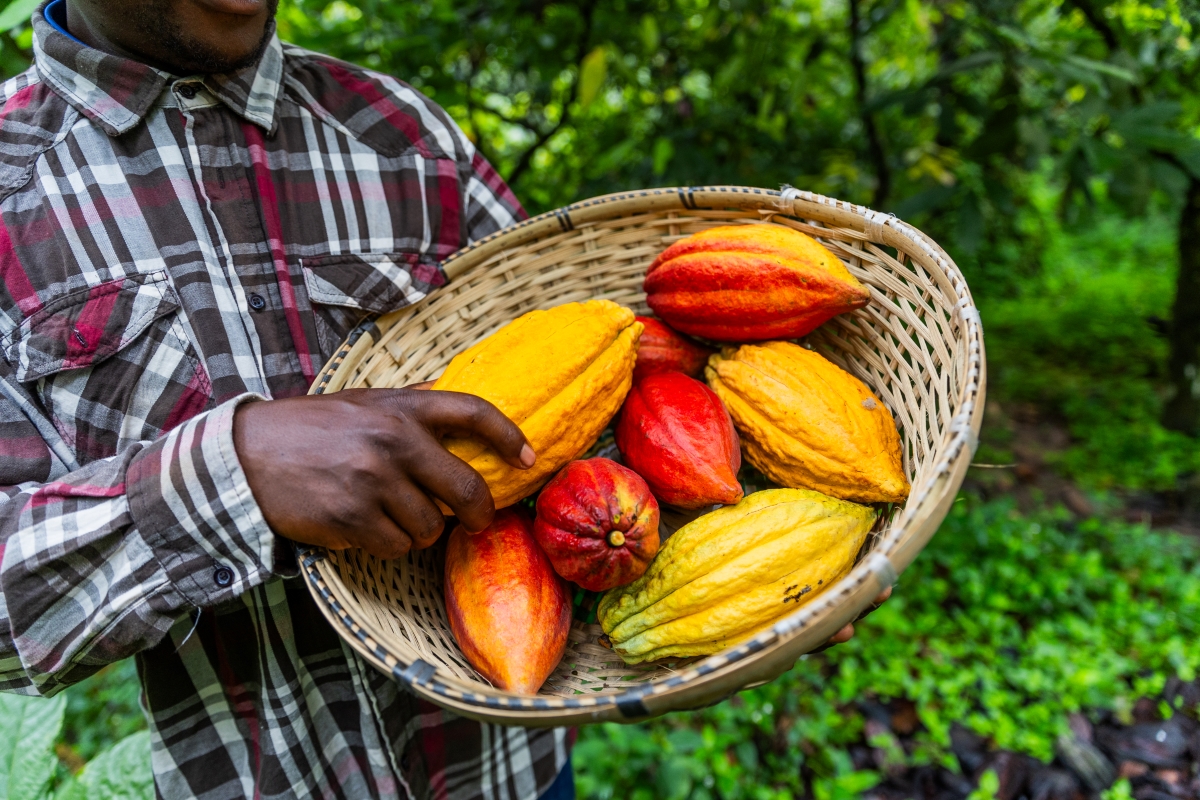Ghana rethinks cocoa financing amid falling production
The world’s second-largest cocoa producer seeks US$1.5bn for the upcoming harvest

Ghana appears to be moving away from its decades-long reliance on international bank financing for its cocoa sector. The Ghana Cocoa Board (Cocobod), which oversees the industry, has traditionally relied on foreign loans to finance the procurement of seedlings, chemicals, and fertilisers, as well as to purchase harvested cocoa beans from farmers.
While Finance Minister Mohammed Amin Adam has assured that Cocobod will not completely sever ties with international lenders, their role is set to diminish significantly. Foreign banks are now expected to contribute no more than US$600m towards the total financing target of US$1.5bn for the 2024/25 season. Traditional lenders have reportedly expressed scepticism over Ghana’s cocoa crop output, which has significantly declined in recent years. Cocobod had to pay a record 8% interest on last year’s loan, a rate some also attributed to the broader tightening of credit conditions.
Before Adam’s remarks, Cocobod announced it would finance the upcoming season’s harvest from domestic sources. Another report suggests that Cocobod is refining a new funding model for bean purchases which will require global traders, such as Singapore’s Olam, to deposit at least 60% of the value of their forward contracts at the start of the season. This new model is expected to save Cocobod over US$150m in interest payments.
Against a minimum production target of 800,000 tonnes, Ghana harvested 683,000 tonnes in 2021-22, which fell to 654,000 tonnes in 2022-23. The output is expected to drop to 501,000 tonnes by the end of September. The country has reduced its crop harvest target for 2024-25 by 20%, lowering it to 650,000 tonnes.
Ghana’s cocoa industry, the world’s second-largest, has been battered by a perfect storm in recent years. A combination of adverse weather, disease, and illegal mining activities has led to declining output. In December 2023, substantial rainfall across the West African region triggered an outbreak of black pod disease, affecting numerous cocoa plants. This was followed by droughts in February 2024, which further reduced yields. The swollen shoot virus has infected approximately 590,000 ha of the country’s 1.38m ha of cocoa plantations. The virus typically reduces yields by 25% within the first year and by 50% within two years, with most trees perishing within three to four years. Once a plantation is infected, it must be cleared and the soil treated before replanting. Compounding these agricultural challenges, illegal gold mining has escalated, leading to the destruction of cocoa plantations for mining operations. Neighbouring Côte d'Ivoire has faced many of the same issues.
This situation has triggered a dramatic rise in cocoa prices. By mid-April 2024, cocoa futures in New York had soared to an unprecedented level of over $11,000 per tonne, a sharp increase from under $2,850 in early March 2023. However, prices have since eased somewhat, partly due to reports of improved weather conditions in Côte d’Ivoire and Ghana.
In addition to financing inputs and purchasing harvested beans, the annual syndicated loan from banks provided foreign exchange that helped the central bank stabilise the nation’s currency. Without this foreign funding, the Bank of Ghana will now have to wait for revenue from bean sales to build foreign reserves, rather than receiving a large sum at the start of each harvest season.
Singapore-based agribusiness majors Olam and Valency International are significant players in Ghana’s cocoa sector. Olam sources cocoa beans from smallholder farmers in Ghana and processes them at its factory in Kumasi. Valency also procures cocoa from Ghana, distributing it to clients across the globe.
References
‘Cocoa production in Ghana and Côte d'Ivoire collapses’, NTU-SBF Centre for African Studies, 28 April 2024
‘COCOBOD confident of producing 800,000 tonnes after investing GH¢943m’, The Business & Financial Times, 13 August 2024
‘Ghana locked in talks to borrow $500 million from cocoa traders’, Bloomberg, 16 August 2024
‘Ghana ditches foreign funding of cocoa, breaking 32-year-old tradition’, Bloomberg, 20 August 2024
‘Response to Minority press release in respect of Cocobod's strategic policy shift’, Ghana Cocoa Board, 22 August 2024
‘Can Ghana rely on local sources to finance upcoming cocoa season?’, CNBC Africa, 22 August 2024
‘Exclusive: Ghana's Cocobod to ask traders to pre-finance bean purchases in new funding model’, Reuters, 23 August 2024
‘Ghana Cocoa Board abandons plan to borrow from global lenders for cocoa production’, CGTN Africa, 23 August 2024
‘Ghana cocoa syndication talks continue, finance minister says’, Bloomberg, 26 August 2024
‘Cocoa Market Review: July 2024’, ICCO, Accessed 28 August 2024














/enri-thumbnails/careeropportunities1f0caf1c-a12d-479c-be7c-3c04e085c617.tmb-mega-menu.jpg?Culture=en&sfvrsn=d7261e3b_1)

/cradle-thumbnails/research-capabilities1516d0ba63aa44f0b4ee77a8c05263b2.tmb-mega-menu.jpg?Culture=en&sfvrsn=1bc94f8_1)







